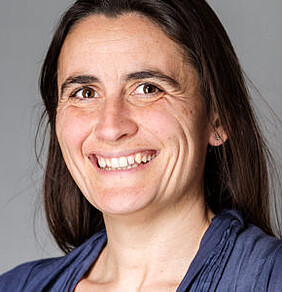will take place on Tuesday, February 14, 2017 from 17:15 to 18:15 hours in CBBM Building, EG, Room 50/51.
Host: Prof. Sören Krach
Department of Psychiatry and Psychotherapy
University of Lübeck
Abstract
Many are the occasions, in our daily life, in which the emotions of other people influence our own: we rejoice with the victory of our friend, and cry to the pain of our mom. What is happening in our brain when we share the emotions, sensations and actions of other people? What brain areas are involved, what mechanisms? Is this sharing unique to humans, or do animals reflect the state of other beings as well?
During my talk I will guide you through the world of sharing, showing the brain areas that are involved and the mechanism we believe make the sharing possible. Animal and human work will be compared in order to identify similarity and differences of the process.
CV
Valeria Gazzola studied Biology in Parma – Italy – and started her scientific career in Rizzolatti's lab, where mirror neuron where first recorded. She then moved to The Netherlands where she investigates how our brains not only activate their motor system while viewing the actions of others but also their somatosensory and limbic brain while witnessing the somatosensory and emotional states of others. She is currently associate professor at the University of Amsterdam, a group leader at the Netherlands Institute for Neuroscience in Amsterdam and a member of the Young Academy of Europe. Her work attracted international (NARSAD) and national grants (VENI, VIDI, ASPASIA), and with over 2700 citations she has been ranked in the top 1% of scientists (WoS essential indicators). Her impact cuts across disciplines (~40% of citations from neurosciences, ~25% psychology, 10% behavioural sciences, remainder medicine and humanities). Her dynamic and international group, composed of four PhD students and four Postdocs, investigates the causal relationship between vicarious activations and behavior by using a combination of fMRI, EEG, tDCS and TMS, human and rodent work.


